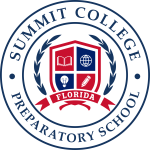Models for Gifted Education: Tailoring Approaches to Meet Diverse Needs
Acceleration. Enrichment. SEL. Differentiation.
Gifted education demands more than traditional classroom strategies. To help gifted students reach their potential, educators must use approaches tailored to their advanced intellectual, emotional, and social capacities. These include academic acceleration, enrichment opportunities, and structured emotional learning. When implemented holistically, these models offer meaningful intellectual challenges alongside necessary emotional and social support.
Below are five researchsupported Models for Gifted Education that educators use to meet the needs of gifted learners.
Acceleration Models: Pushing the Boundaries of Learning
Acceleration lets gifted learners move through the curriculum at a faster pace. This keeps them motivated and avoids boredom. Instead of holding them back, educators allow them to engage deeply with material that matches their abilities.
Grade Skipping: Students advance to a higher grade. This ensures intellectual stimulation, though it requires emotional readiness and social support.
Advanced Coursework: Enrolling in honors or university-level classes offers depth and challenge, often giving early exposure to college-level material.
Subject-Based Acceleration: Students advance in specific areas like math or language while staying in their current grade for other subjects.
Benefits: Increases engagement and academic growth while reducing frustration.
Challenges: May cause social gaps or require readiness testing.
Enrichment Models: Deepening Intellectual Exploration
Enrichment gives gifted students the chance to dive deeper into content. This strategy fosters creativity, independent thinking, and lifelong curiosity. Unlike acceleration, enrichment expands knowledge without skipping ahead.
Independent Study Projects: Students explore personal interests with guidance, promoting autonomy and inquiry.
Mentorship Programs: Real-world mentorship connects students to professionals for advanced exposure.
Interdisciplinary Learning: Linking subjects like science and art encourages innovation and cross-domain thinking.
Benefits: Nurtures creativity, deepens expertise, and supports intrinsic motivation.
Challenges: Requires time and resources and must be well-integrated with core learning.
Differentiated Instruction: Tailoring Learning to Individual Needs
Differentiation adjusts the curriculum to suit each student’s strengths. It includes personalized tasks, flexible grouping, and advanced reading options. Teachers design learning to meet students where they are—and push them further.
Content, process, and product are all tailored to foster challenge and mastery. Gifted students stay engaged through work that feels meaningful and appropriately difficult.
Benefits: Inclusive and supportive, allowing students to excel in their own way.
Challenges: Demands skilled teaching and thoughtful planning.
Social-Emotional Learning (SEL): Nurturing Emotional Well-being
Gifted students often deal with stress, perfectionism, and sensitivity. SEL gives them tools to manage emotions, build resilience, and form relationships. These skills are essential for success inside and outside the classroom.
Self-Regulation: Supports focus and emotional control.
Empathy: Promotes healthy interactions and group collaboration.
Stress Management: Helps students cope with high expectations and internal pressure.
Benefits: Emotional growth, better peer connections, and long-term well-being.
Challenges: Emotional needs vary and require individual attention.
Tailored Models for Gifted Education and Integrated Strategies
Every gifted student is different. The most effective programs combine acceleration, enrichment, SEL, and differentiation to support academic success and emotional health.
At Summit College Prep, we blend these approaches to offer each learner a personalized journey. Students receive the challenge they crave and the support they deserve every day.
Learn more about our Gifted Education Program and how we partner with families to build strong academic futures.
